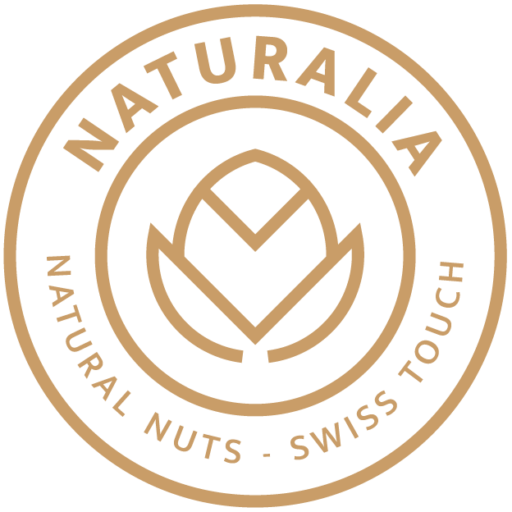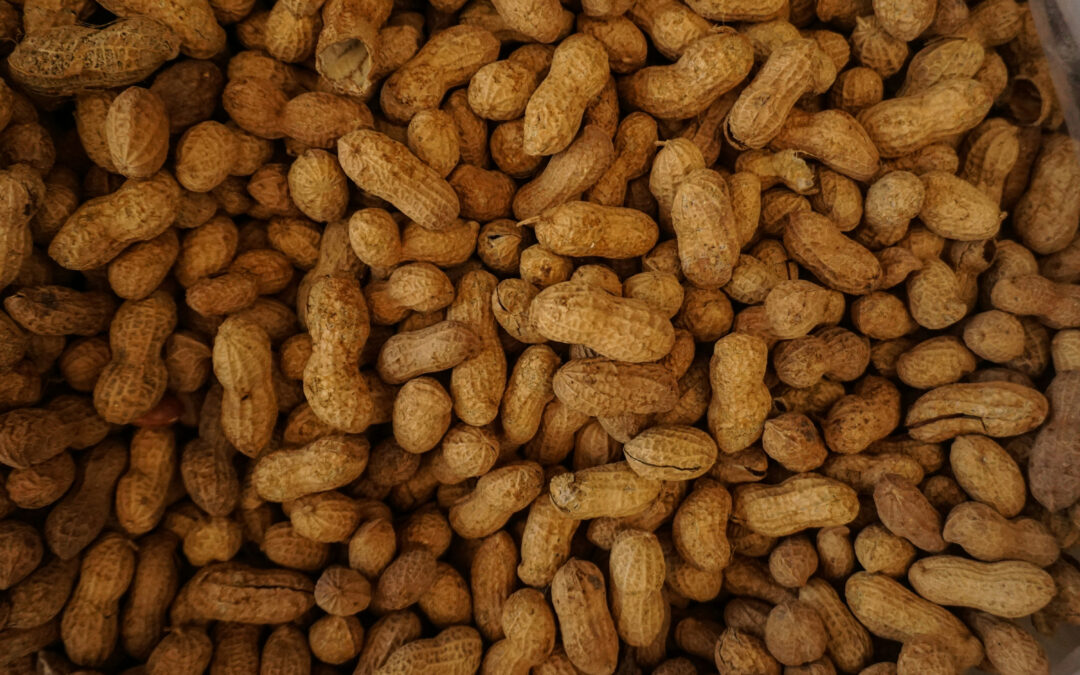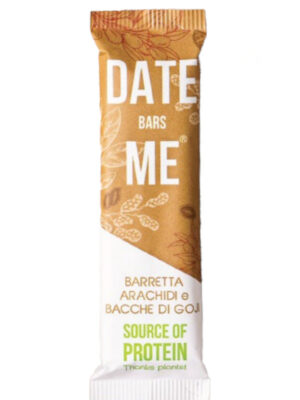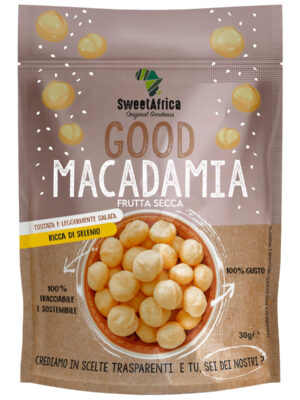Noccioline. Questo piccolo frutto, spesso sottovalutato, è un vero e proprio scrigno di nutrienti essenziali per il nostro organismo. Le noccioline, o peanuts, non sono vere e proprie noci, ma i semi della pianta di arachide (Arachis hypogaea). A differenza di molte altre noci che crescono sugli alberi, le arachidi maturano sottoterra, una caratteristica unica che le rende affini ai legumi come fagioli e lenticchie.
A complete nutritional profile
Peanuts are a concentrate of nutrients:
- Good' fats: Rich in monounsaturated and polyunsaturated fats, such as oleic acid, they help reduce LDL ('bad') cholesterol and protect cardiovascular health.
- Vegetable protein: They are an excellent source of vegetable protein, essential for tissue growth and repair. Ideal for vegetarians and vegans.
- Fibres: They promote intestinal regularity, help control appetite and stabilise blood sugar levels.
- Vitamins and minerals: They contain B vitamins (essential for energy metabolism), vitamin E (a powerful antioxidant), magnesium (important for bones, muscles and the nervous system), phosphorus (involved in energy production) and potassium (which helps regulate blood pressure).
Health benefits
Regular consumption of nuts, as part of a balanced diet, can provide numerous health benefits:
- Cardiovascular health: Due to their content of monounsaturated fats and antioxidants, nuts help reduce the risk of cardiovascular diseases such as atherosclerosis and heart attacks.
- Weight control: The fibre contained in peanuts helps one feel full for longer, reducing hunger pangs and promoting weight control.
- Brain health: Some studies suggest that the healthy fats and antioxidants in peanuts may help improve cognitive function and protect the brain from ageing.
- Skin health: Vitamin E, found in abundance in nuts, is a powerful antioxidant that helps protect the skin from damage caused by free radicals.
A journey through history and culture
Le noccioline hanno una storia affascinante. Originarie del Sud America, venivano coltivate già dai popoli precolombiani. La loro diffusione in tutto il mondo è stata favorita dalle esplorazioni marittime. In Italia, le noccioline sono conosciute con molti nomi diversi, a testimonianza della loro popolarità: spagnolette, cecini, scachetti, giapponi, e molti altri.
Versatility in cooking is another strong point of peanuts. Besides being a delicious snack, they are a valuable ingredient to prepare:
- Peanut butter: A spreadable cream rich in protein and healthy fats, perfect for filling sandwiches, toast and crepes.
- Sweets: Peanuts can be used to prepare biscuits, cakes, muffins and other sweets.
- Savoury dishes: Roasted and salted nuts are an excellent accompaniment for salads, soups and meat or fish dishes.
Beware of allergies
Despite its many benefits, it is important to remember that peanuts are one of the most common food allergens. Allergy to peanuts can cause even severe allergic reactions, up to anaphylactic shock. Therefore, it is crucial to pay attention to product labels and consult your doctor if you suspect an allergy.
How to choose and store nuts
To make the most of the nutritional properties of peanuts, it is important to choose quality products. Opt for organic nuts if possible, and store them in a cool, dry place, away from direct sunlight.
In conclusion
Nuts are a nutritious and versatile food that can be included in a balanced diet to improve health. Rich in good fats, protein, fibre and vitamins, nuts are a valuable ally for the heart, brain and the entire body. However, it is important to consume them in moderation and watch out for possible allergies.
Find out more about the nutritional benefits of dried fruit in our section at the link: cashews and goji berries.





